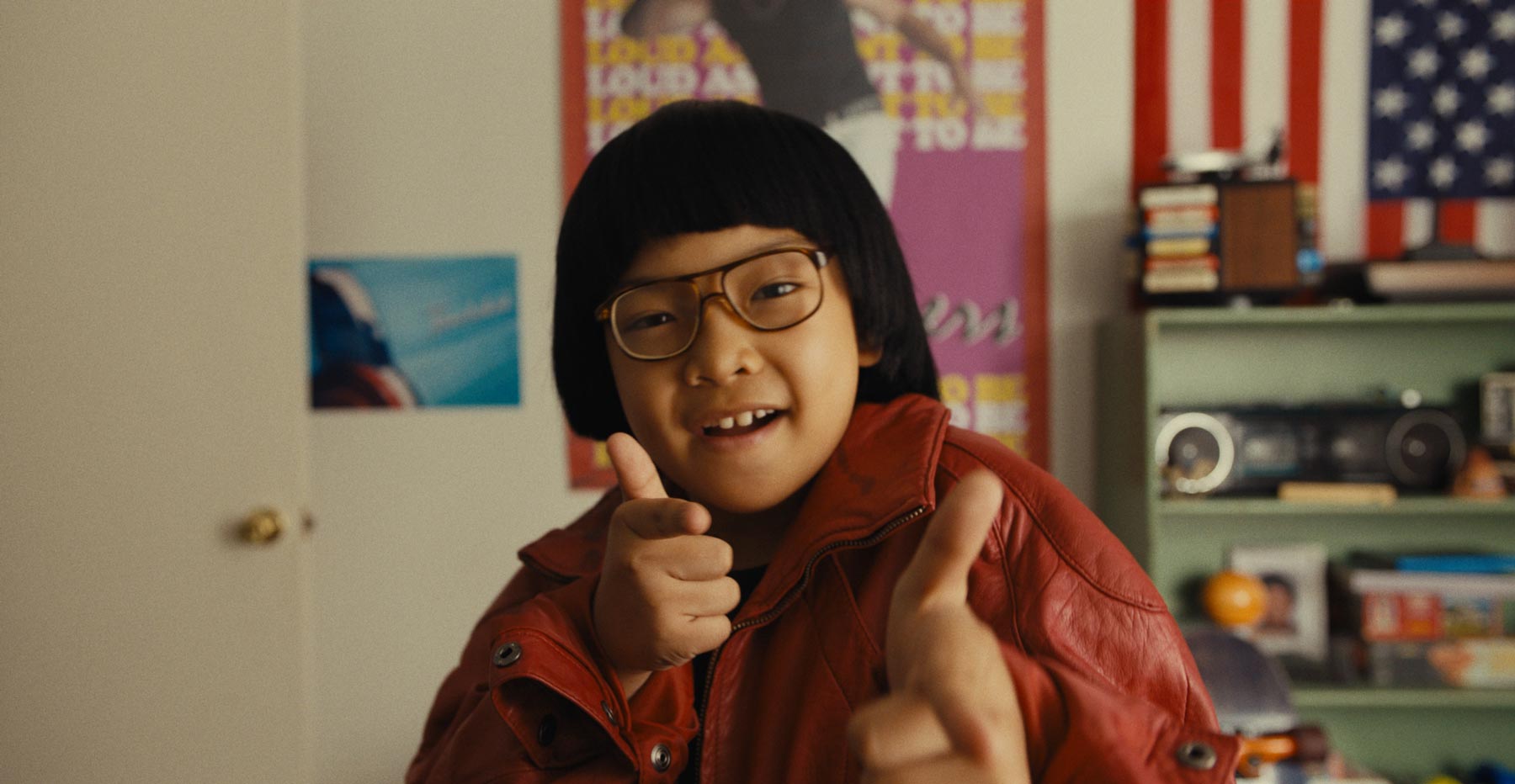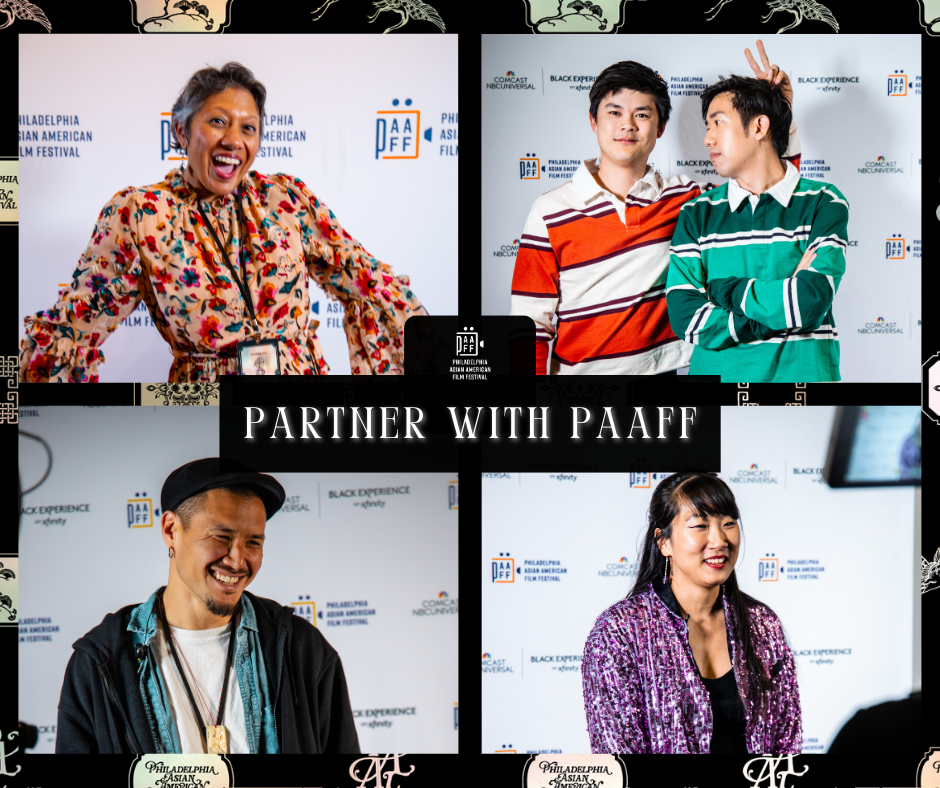With premises as outrageous as a secret underground Chinese chess enclave and a truly magical strain of weed, this collection of comic short films are somewhat like life as viewed in a funhouse mirror. While they’re guaranteed to make your smile, the shorts in our LMAO: Lighthearted, Merry, Amusing, Outrageous program also offer fresh perspectives on navigating our way through modern life.
Some of the filmmakers and actors from this program chatted with us about their films, their artistic roots, and their dreams.
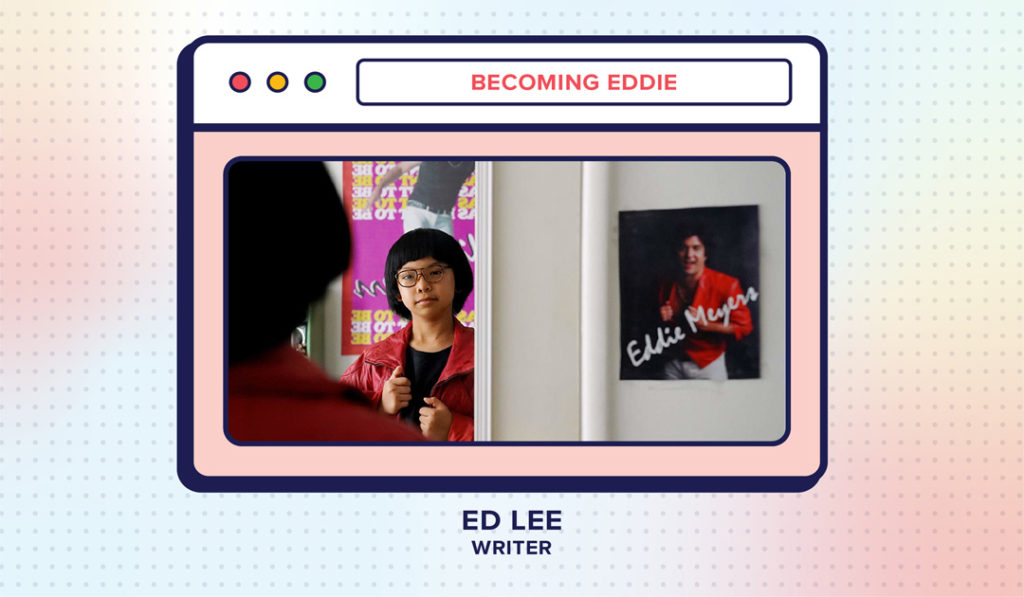
Becoming Eddie
Writer: Ed Lee
Without spoiling anything, describe your film in 7 words or less.
E. Lee: Korean American boy wishes to be comedian.
Do you have a favorite memory from making this film? Were there any challenges that you had to overcome?
E. Lee: With my producer Joyce Liu Countryman and director Lilan Bowden, we worked hard to put together a majority BIPOC and gender equal cast and crew. Seeing true inclusion on set is something I never experienced in all the time I’ve worked in TV and film, so walking onto set for call time each morning and seeing our crew in action was truly an emotional experience for me.
What do you hope to see in the future for the film industry? How do you see yourself and your work playing a role in this future?
E. Lee: I hope to see more comedy from Asian American voices. I’m trying to tell my authentic story through my writing. If we all do that, we can help to dispel the myth that all Asian Americans are foreigners in this country, where many of us were born and raised.
What’s next for you?
E. Lee: Our team is developing Becoming Eddie into a television series with Sony Pictures Television.
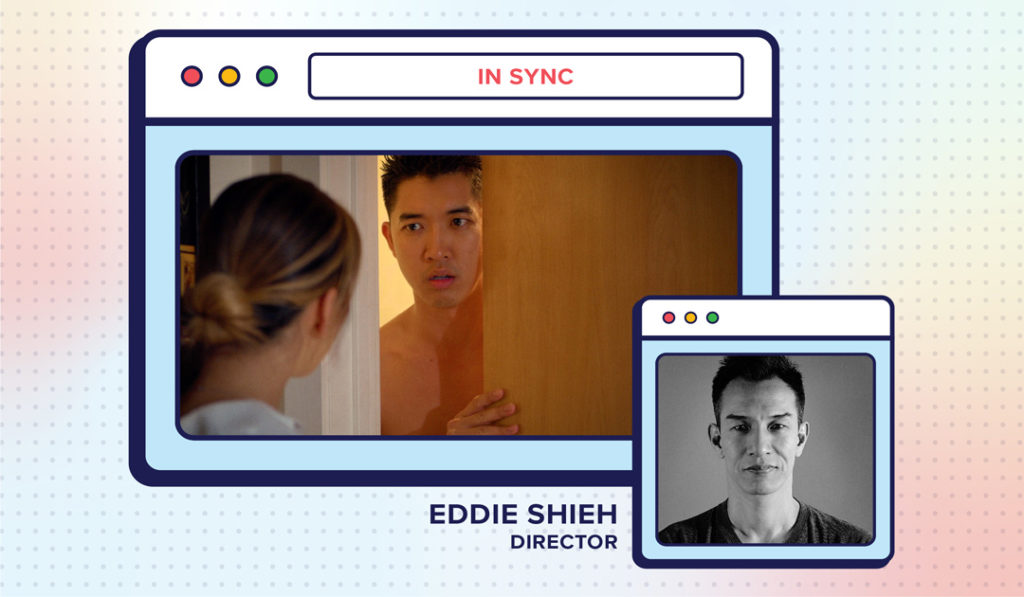
In Sync
Director: Eddie Shieh
Without spoiling anything, describe your film in 7 words or less.
E. Shieh: Lovers catch each other breaking the rules.
Do you have a favorite memory from making this film? Were there any challenges that you had to overcome?
E. Shieh: This film was originally created for the 72 Hour Shootout by the Asian American Film Lab in 2019. That in itself was a challenge. But it goes without saying that all films are the sum of its parts. Here, 14 passionate, humble filmmakers – plus significant others – enjoyed making a romantic comedy as a team. We were truly “in sync.” That, by far, is what I’ll always keep from this film.
What do you hope to see in the future for the film industry? How do you see yourself and your work playing a role in this future?
E. Shieh: I look forward to being the “crazy old man” from sharing unbelievable stories to my kids as teens, and hopefully their grandchildren, about the lack of media representation and inequality from this laughable era. Until then, I hope to continue creating honest stories that showcase Asians and Asian Americans in roles representing all facets of humanity.
What’s next for you?
E. Shieh: As a twindad of toddler boys I strive to sleep as much as allowed. Creating stories is a close second.
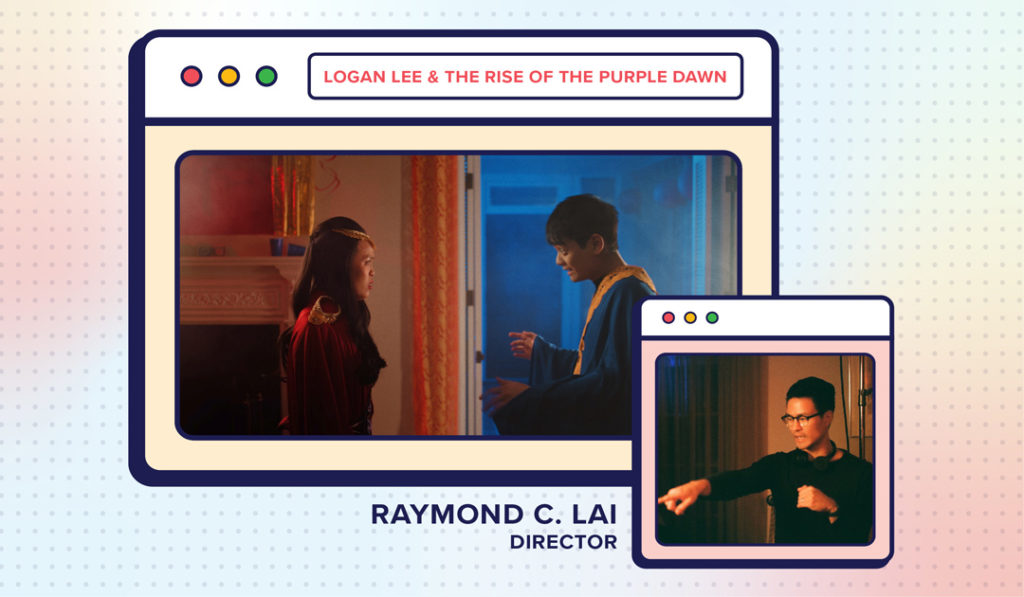
Logan Lee & The Rise of the Purple Dawn
Director: Raymond C. Lai
Without spoiling anything, describe your film in 7 words or less.
R. Lai: Killer wax and soul-sucking attacks.
Do you have a favorite memory from making this film? Were there any challenges that you had to overcome?
R. Lai: With Logan Lee & the Rise of the Purple Dawn, I set out to make a film that would be a celebration of Asian-American hip-hop – music was always going to be the breakbeat backbone that gave this film its shape. Thus, one of my favorite memories of making this film was the moment I realized that our backbone would be composed of a murderers’ row of Asian-American hip-hop luminaries. I mean, come on. We got score and original music by Dan the freakin’ Automator, with a verse by Lyrics Born, which we recorded at Beatrock Studios (Shout out Fat Gums!). Then, to top it all off, we got additional music from Philly’s own CHOPS of the Mountain Brothers. Like I said, MURDERERS. ROW. These were artists that I grew up admiring, even emulating, whom I sought to celebrate with this film. And then they agreed to be a part of the film itself? I still can’t believe it.
That moment, that memory, I’ll cherish the rest of my career.
What do you hope to see in the future for the film industry? How do you see yourself and your work playing a role in this future?
R. Lai: I hope that the wave of providing platforms for more diverse and inclusive voices continues with increased energy and amplification, with opportunities to tell different types of stories that occupy all types of genres. We are all boats on this rising tide. I just hope I can continue to stomach the waves.
What’s next for you?
R. Lai: I am currently rewriting the feature version of Logan Lee & the Rise of the Purple Dawn, as well as writing a new sci-fi/comedy web comic about a failed Asian-American intergalactic bounty hunter.
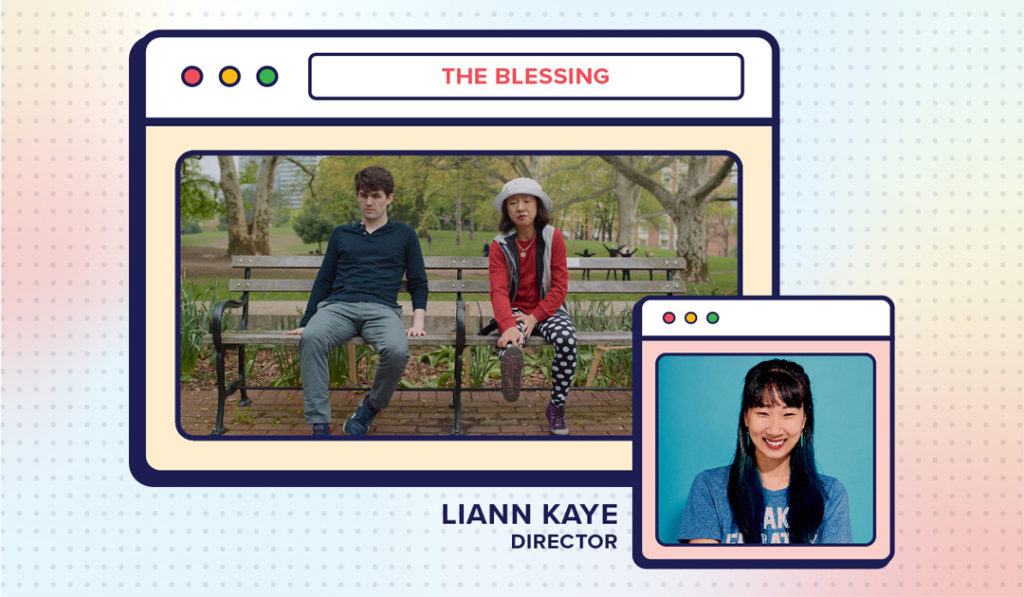
The Blessing
Director: Liann Kaye
Cast: Ryan Wright
Without spoiling anything, describe your film in 7 words or less.
L. Kaye: A man wants to marry into a Chinese family.
Do you have a favorite memory from making this film? Were there any challenges that you had to overcome?
L. Kaye: Finding older Asian actors was unfortunately difficult! I want to see more representation in our community in the future! I had to ask my actresses if they had friends that wanted to be in our tai chi group. Many of them weren’t even actresses but retirees who wanted to have some fun.
R. Wright: We filmed just about all the scenes in the order in which they appear in the film. That never happens so it made my job as an actor even easier. But my favorite memory was our morning setup rehearsal. We filmed in Fort Greene Park and when we first arrived, it was still off-leash hours for the dogs. There were lots of friendly dogs running in and out of our rehearsal!
What do you hope to see in the future for the film industry? How do you see yourself and your work playing a role in this future?
L. Kaye: I hope to be a writer/director of Asian American stories.
R. Wright: I hope when someone sits down to watch a movie they see themselves represented in the characters and the storytelling. Diversity and inclusion are so important right now and film has the power to inspire young artists and show them that they have a place in the entertainment industry. If I can play a part in making that happen, that’s the path I want to take.
What’s next for you?
L. Kaye: The Blessing has won a grant from the NYC Women’s fund to be serialized. I’ll be creating 5 more episodes where my protagonist can meet the rest of the family.
R. Wright: The Blessing is now a series and we are currently safely shooting future episodes!
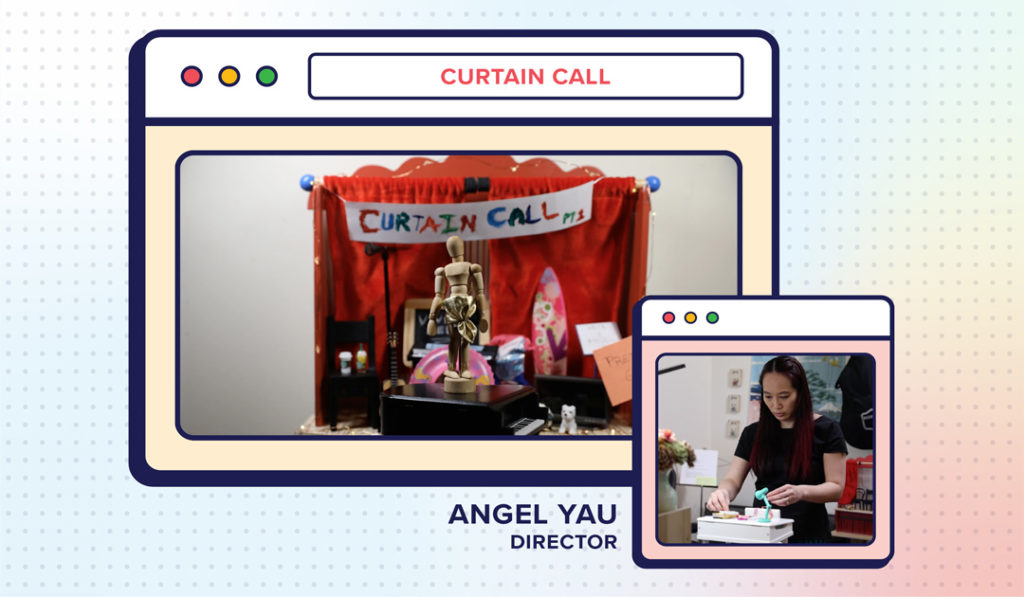
Curtain Call
Director: Angela Yau
Without spoiling anything, describe your film in 7 words or less.
A. Yau: All the moments I was on stage.
Do you have a favorite memory from making this film? Were there any challenges that you had to overcome?
A. Yau: Looking at my script at 3 am and thinking, I have one more page to film but I think I am done. Challenge of knowing to trust your instinct and shape your story as you go and not to stick to the exact original plan.
What do you hope to see in the future for the film industry? How do you see yourself and your work playing a role in this future?
A. Yau: I really do hope we see more Asian American stories in the industry, not just in front of the camera but behind the camera. Oftentimes our stories get overlooked or become cliches. We are much more than children of immigrants, battling between two identities and being the model minority. We can be leads, we can tell a story without addressing our background explicitly.
What’s next for you?
A. Yau: I am hoping to create a long form series with my stop-motions as I create more! Addressing more issues and themes Asian Americans face in their childhoods.
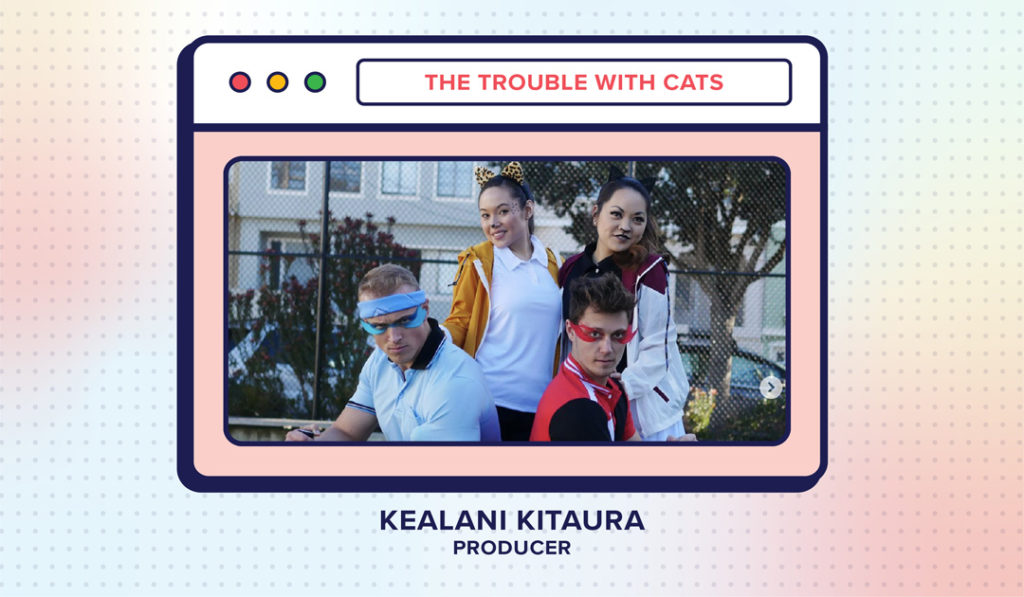
The Trouble With Cats
Producer Kealani Kitaura
Without spoiling anything, describe your film in 7 words or less.
K. Kitaura: The woes of dating.
Do you have a favorite memory from making this film? Were there any challenges that you had to overcome?
K. Kitaura: I loved the crew I worked with and it was amazing to act with my sister. Some challenges were audio. It’s always the refrigerators. LOL.
What do you hope to see in the future for the film industry? How do you see yourself and your work playing a role in this future?
K. Kitaura: I hope to continue to see a great deal of diversity in front and behind the camera. Personally, I’d love to provide opportunities to the unheard passionate voices who have a story to tell.
What’s next for you?
K. Kitaura: I am just so grateful to have met such wonderful talented people that are so passionate about what they do! In the future I hope to continue to collaborate with like minded passionate friends!
To watch this short film program, LMAO: Lighthearted, Merry Amusing, Outrageous!, you can purchase access here. This program is available from November 5th – 15th.
Watch the recorded Q&A here, conducted on 11/8 at 5:30pm EST over livestream with the featured filmmakers of this program.

